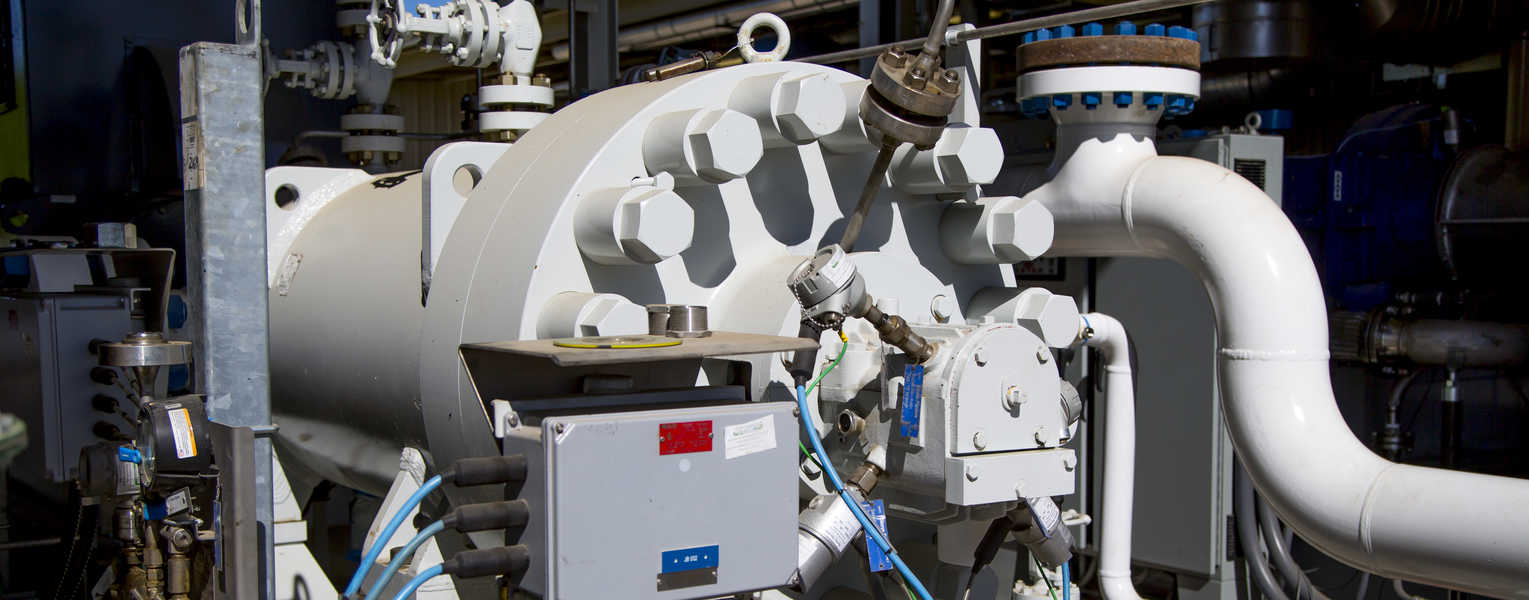Vibration, excessive noise, failures, and other dynamics-related problems that limit or prevent operation are often experienced in gas turbines. Unexpected problems may be experienced shortly after installation, after a major repair, or as a result of premature failure. Engineers at Southwest Research Institute (SwRI) are trained and equipped to respond quickly and comprehensively to unscheduled gas turbine outages or performance limitation problems.
Special Troubleshooting Capabilities
We have developed special capabilities to solve problems in areas such as:
- Rotor Vibration – Engineering teams equipped to monitor vibration, detect critical speeds, identify rotor instabilities, and balance rotors. Software and expertise to simulate rotor dynamics problems to provide bearing and shaft design correction guidance.
- Structural Resonance – Capabilities to conduct vibration surveys and impulse or shaker testing to detect structural resonance or excessive excitation sources.
- FEA expertise to provide design guidance.
- Flow-Induced Vibration and Noise – Measurement techniques to identify flow-induced responses across tube bundles, side cavities, and bluff or tapered bodies in flow streams. SwRI experience includes solving flow-induced vibration and noise problems with safety relief valves, heat exchangers, heat recovery steam generators (HRSGs), and flow splitters.
- Surge/Rotating Stall Detection – Sensors for detecting recirculating flow trends within centrifugal and axial flow compressors as precursors to surge. Experience in detecting rotating stall using pressure transducers and case-mounted accelerometers.
- Blade Stress Audits – Quick-response techniques for evaluating blade operating frequency margins, resonance, and resonant stress levels of turbomachinery blades and impellers.
- Failure Analysis – Root cause diagnoses based on identifying fracture mode and initiation site by metallurgical examination combined with evaluating excitation levels, environmental conditions, static and dynamic loading, and operating history.
- Alignment and Casing Distortion – Monitoring and assessing rotor casing, foundations, and support movement utilizing lasers, tilt sensors, and displacement transducers. Correlation with measured thermal gradients and operating trends.
- Thermal Stress Testing and Analysis – Temperature and stress measurements, trending and correlation with operating parameters to detect thermal gradients, and effect on gas turbine structural components such as case bowing, ovalization, axial growth, and differential growth between casing and rotor.
SwRI can offer you a full range of capabilities and experience in gas turbine technology including becoming an extension of your engineering department.
Contact us for more information about our troubleshooting turbomachinery operating and installation capabilities. To contract with SwRI, please contact the Machinery Services Hotline at +1 210 522 3000.
For more information, contact Ben White or call +1 210 522 2554.

